Discover financial empowerment resources
Discover financial empowerment resources
The findings in this report highlight the important role of Old Age Security in reducing poverty, with payments under this program making up a large share of annual income for older adults in Toronto’s lowest income deciles. However, too many eligible older adults in Toronto are not receiving OAS...
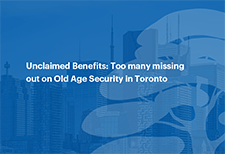
York Region Plan to Support Seniors hosted an information series with John in late 2024. In these recorded sessions, John looks at what people need to know about retiring on a low-income, how to make the most of government benefits and other considerations. Session 1: What “low-income” means...
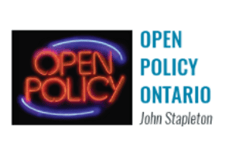
Working poverty is pervasive, racialized, and until the pandemic, was increasing in Toronto and across Canada. Until the pandemic, this increase was counterintuitive, during 2006 to 2016, as most of this ten-year period had been characterized by one of the most prolonged economic recoveries in...

In this blog, John Stapleton breaks explains income security and personal tax systems in Canada in the simplest way...

Financial planners and advisors want to better the lives of the people they work with, but may not know that conventional retirement advice often doesn’t work for low-income retirees. Getting it right when every dollar counts The advice that works well for higher- and middle-income clients can...

This booklet contains information on retirement planning on a low income. Topics include four things to think about for low income retirement planning, a background paper on maximizing the Guaranteed Income Supplement (GIS), and determining Old Age Security (OAS) and GIS eligibility for people who...
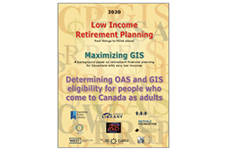
This policy backgrounder provides an overview of how provincial and territorial governments have decided to treat receipt of the Canada Emergency Response Benefit (CERB) for those receiving social assistance and/or living in subsidized housing. It also looks at provisions for youth aging out of...
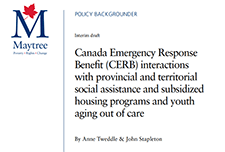
The engagement of Canadians with lived experiences of poverty in government consultations on poverty reduction is critical. But as hard as governments work to try to include people living in poverty as full participating members in their consultation processes, there are many barriers that continue...
This report estimates the price of inaction. Regardless of the strategy used to address poverty, it asks, “What does it cost us to allow poverty to persist in Toronto?” It estimates how much more we may be spending in the health care and justice systems simply because poverty exists, and how...
This presentation covers information about retiring on a low income in Ontario. It covers: 1. What seniors get in Ontario 2. What does ‘low income’ mean? 3. What does ‘taxable income’ mean? 4. How to reduce taxable income or get money back ─ understanding the system 5. Protecting...
This is a webinar presentation recorded with John Stapleton at Prosper Canada on October 4th, 2016. John Stapleton is a Principal of Open Policy, and has worked for the Ontario Government for 28 years in the areas of social assistance policy and operations. In the session John describes the...
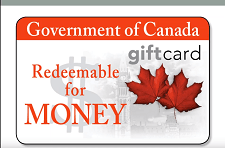
This is a guide on retirement planning for people living on a low income in Ontario. It reviews the Guaranteed Income Supplement (GIS), CPP and CPP early retirement, smart ways to save before turning 65, and smart ways to save between ages 65 and 71. It gives background on eligibility criteria,...
These are notes from John Stapleton on learnings from presenting on Retiring on a Low Income in the Toronto Library System in...
We have to consider the implications of working poverty in Canada’s richest city. The working poor cannot buy homes on their wages and many use food banks and other services to meet their basic needs. At the same time, shifts in the labour market suggest declining opportunities for a growing...
This report has two purposes. The first is to document some of the lessons learned from conducting a financial literacy course on behalf of Houselink Community Homes over the winter of 2013/14. We want to share these insights with others who work with consumer survivors and low-income people. The...
Low-income people need savings and retirement strategies that won’t leave them worse off in their senior years. The purpose of this paper is to educate people who help low-income adults plan for their financial future. Our aim is to put GIS planning at the centre of the pre-retirement discussion...

